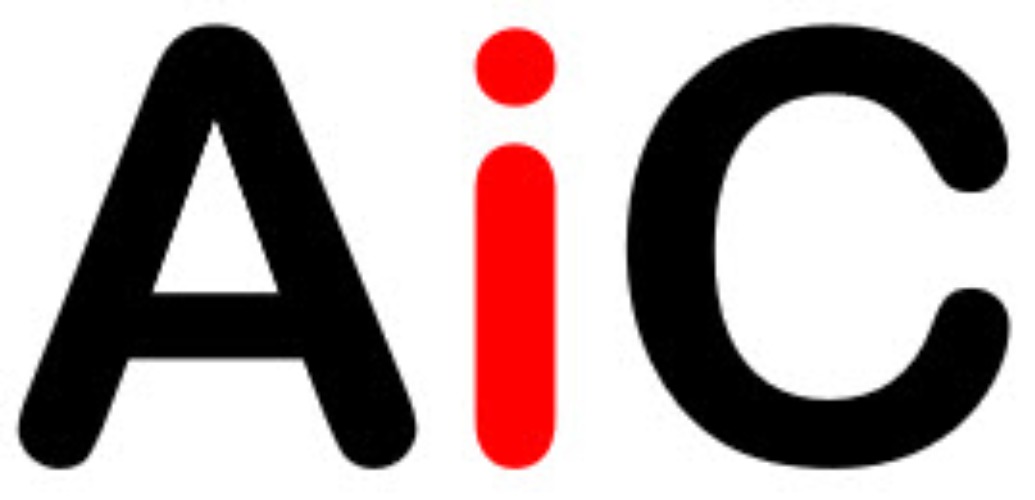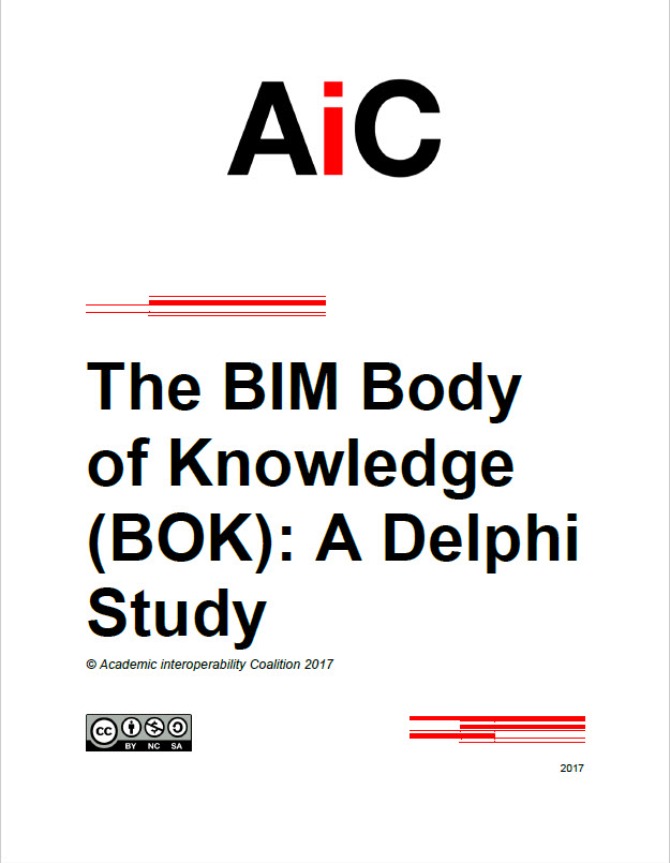Introduction & Background - AiC BIM Body of Knowledge (BOK) Delphi Study Status Report 2017.
BIM BOK Delphi Study
EXECUTIVE SUMMARY
The Academic Interoperability Coalition (AiC) has been a vehicle for communication and discussion concerning how academics around the world, with a focus on the United States, have been introducing BIM to their students for over ten years. BIM education has been difficult to introduce because the continuous challenge of providing students with the whole body of knowledge (BOK) they need to meet the expectations of the workplace. Because of this difficulty and a lack of coordination, a plethora of approaches have been explored. These range from training on how to use BIM tools to educating students in BIM concepts and strategies.
Educational institutions are tasked with graduating students who are prepared to be productive for the firms hiring them after successfully completing their studies. This has had varying levels of success at schools around the country and the world. Academics have been coming together and sharing their positive and negative experiences on teaching BIM through the AiC and its predecessors on an annual basis for more than a decade. It was found that nearly every educator had a different approach that was focused on different aspects of BIM education. A key aspect of BIM is that it is intended to be a collaborative tool for all practitioners, and it was found that on most campuses there was little or no collaboration among the academic units teaching BIM.
Since the accreditation boards have not yet identified criteria for credentialing BIM, it was felt that the AiC could help mitigate the apparent divergence across programs. The AiC proposed that before BIM education could move forward, some common values should be established through a BOK that both curriculum developers and corporate trainers could use as a focus and as a foundational step.
The AiC initiated this grand effort of exploring the first-ever BIM BOK in early April 2015 with a BIM Job Task Analysis (JTA) mini workshop in Washington, DC. As the centerpiece of this research undertaking, a three-round Delphi Study for BIM BOK data collection and consensus building was conducted from mid-July, 2015 to end of July 2016. With unreserved support of the whole AiC membership and painstaking dedication of twenty-three (23) persevering Delphi Study panelists from design and construction practice, a total of sixty-seven (67) BIM BOK line items were developed and consensus levels were achieved by subject matter experts (SMEs, i.e. the Delphi Study panelists) with unprecedented granularity that address four (4) levels of implementation (LOI); four (4) roles of users (ROU); three (3) levels of performances (LOP); and two (2) types of knowledge (TOK), resulting in a total of ninety-six (96) different scenarios. This report serves as a summary of the first milestone of the AiC’s endeavor in BIM BOK research. It is noteworthy that this is accomplished with “Zero” funding and is all based upon voluntary work by the AiC members and Delphi Study panelists.


